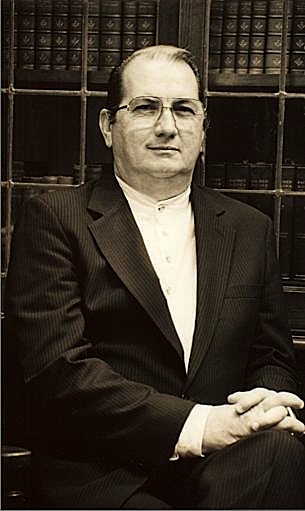The same hierarchy is preserved in their communications. The simple Illuminee corresponds with his immediate superior, the latter with his Dean, and thus gradually ascending to the National Superiors. These latter are in direct correspondence with the Areopagites; and they alone are acquainted with their residence. In this council there is always a member whose particular office is to receive and answer their letters, and to transmit orders, which gradually descend to the person or persons who are the objects of them. The Areopagites alone are entrusted with the name and residence of the General, excepting in cases which I have already noticed, where particular confidence or remarkable services have gained for an adept the signal honour of knowing and approaching the modern Spartacus.
p. 528
It is easy to perceive, from the very regulations of the first degrees, how voluminous this correspondence must be. Each brother, in the first place, as the natural Scrutator of his co-adepts and of the prophane, is bound to transmit at least one letter each month, with a statement of all the observations he has made, whether favourable or detrimental to the Order. He is also to give an account of the progress which himself and his brethren have made; of the orders he has received, and of their execution; and he is each month to inform his higher superiors whether he is pleased with the conduct of his immediate superior. Each brother Insinuator is to report the progress of his Candidates, and the prospect he has of adding to their number. Next, to swell the volume, come all the portraits of the adepts, the extracts of tablets or daily observations made on the friends or enemies of the Order: also the minutes of initiations, the characters and lives of the initiated, the returns made by the Lodges, those by the superiors, and an infinity of other articles which the Illuminee is bound to make known to his chiefs. All this occurs without noticing the numberless orders and instructions which are perpetually transmitting to the inferiors.
Beside the secret language already explained, and of which the grand object was to render this correspondence unintelligible to the prophane, the Sect had secret means of transmitting their letters, lest they might be intercepted. The Order styles these letters relative to their illuminism Quibus Licet’s (or to those who have a right). The origin of this appellation is the direction of these letters which consists of the two words Quibus Licet or simply the initials Q. L. When, therefore, we find in the Original Writings, that such an adept has been fined in such a month for having neglected his Q. L., it must be understood that he let such a month pass without writing to his superiors. 3
When the letter contains secrets or complaints which the adept chooses to keep from the knowledge of his immediate superior, he adds to the direction Soli or Primo (to him alone, to the first); this letter will then be opened by the Provincial, the National Superior, or will reach the Areopagites, or General, according to the rank of the person from whom it comes.
Next to these general means of graduated correspondence, come the meetings proper to each degree, and their respective powers. We have already seen, that those of the Minerval academy are regularly held twice a month. The Minor Illuminees, who are the magistrates of this degree, and the Major Illuminee, or the Scotch Knight, who presides in them, have no direct share in the government, farther than to inspect the studies and watch over the conduct of the young Minervals, and report to the lodges of the Major Illuminees. It is in that degree that the authority begins to extend beyond the limits of the assembly. It is to the Major Illuminees that all the tablets or instructions relative to the brethren of Minerva are sent. Here these statements are digested, and receive additions and notes, before they are forwarded to the assembly of the next superior degree. Here are judged and determined the promotions of the Novices, Minervals, and Minor Illuminees; and also all differences and contests which may arise in the inferior degrees, unless the importance of the debate be such as to require the interference of a higher tribunal. They are the guardians of the first tablets and reversal letters of the

Moe is the founder of GnosticWarrior.com. He is a father, husband, author, martial arts black belt, and an expert in Gnosticism, the occult, and esotericism.





